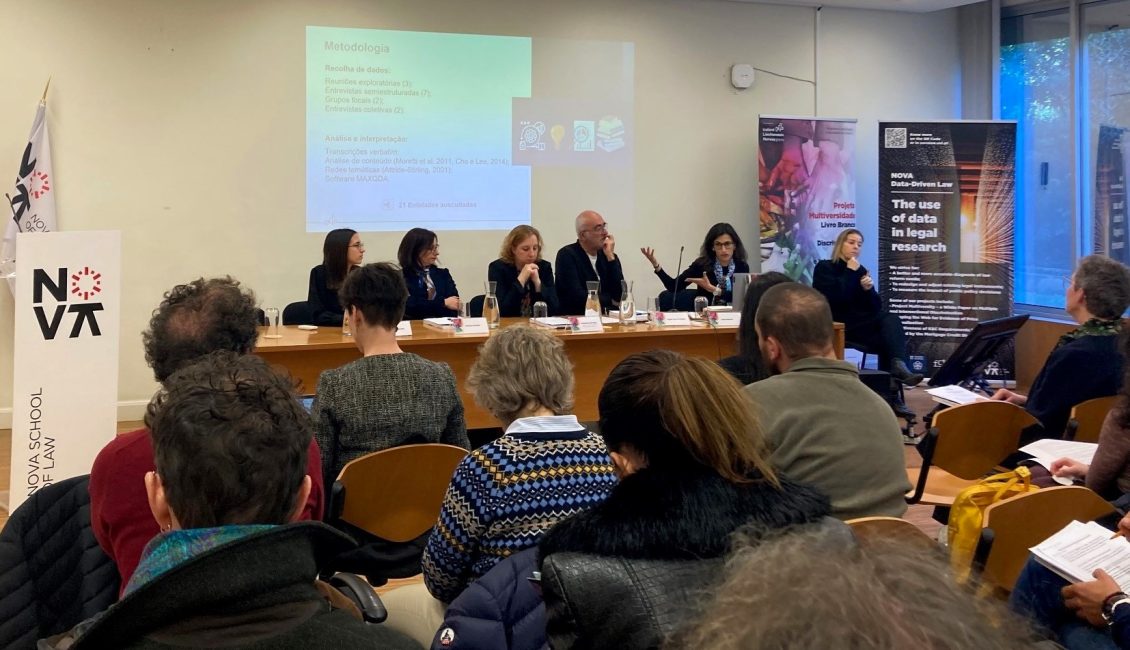
The final conference of the Project Multiversity – White Paper on multiple and intersectional discrimination took place on Monday 26 February in NOVA School of Law, Campus Campolide. Over the course of 18 months, the project carried out research with the aim of producing a scientifically based recommendation to level and harmonise anti-discrimination protection in Portugal, considering sequential, additive and intersectional multiple discrimination. The project was financed by EEA Grants, under the Conciliation and Gender Equality Programme, whose promoter is the Commission for Citizenship and Gender Equality. And it was promoted by NOVA School of Law in the context of the NOVA Knowledge Centre for Data-Driven Law.
At the final conference, the researchers involved presented the methodology, the development of the research – coordinated by Professor Margarida Lima Rego and Professor Paulo Côrte-Real – and the results. Joana Brilhante and Miguel Vale de Almeida presented the social analysis of the results, while Maria João Resende and Veronica Corcodel presented the legal analysis of the research. The results have been published in “Multiversity: White Paper on multiple and intersectional discrimination”, which can be downloaded here.
To develop the project, the legal and institutional frameworks for anti-discrimination in different countries (Germany, Sweden, Greece and Norway) were analysed, with a special focus on the Norwegian experience through a partnership with Egalia, centre against discrimination in Norway. During the final conference, Lena Løvdal, a representative of Egalia who advised Multiversity, gave an overview of the situation in Norway on this issue. The final meeting of the project was also attended by the representative of the Norwegian Embassy in Portugal, Gerd Pettersen, Deputy Head of Mission.
Following the presentation of the results, proposals for a bill were presented to parliamentary groups.
Read more on the Project Multiversity page.









